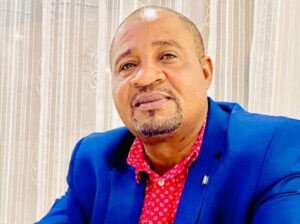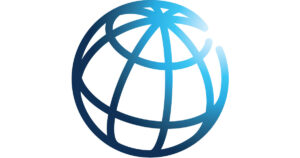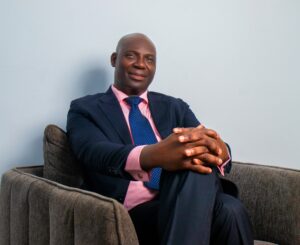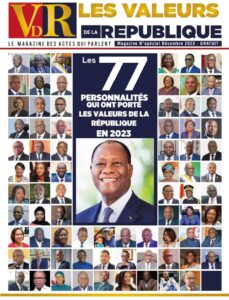MODERATOR: Greetings to everyone from the U.S. Department of State’s Africa Regional Media Hub. I would like to welcome our callers who have dialed in from across Africa and elsewhere. Today, we are joined by Susan Thornton, U.S. Deputy Assistant Secretary of State for East Asian and Pacific Affairs, and Peter Barlerin, Director of the Office of Economic and Regional Affairs in the Bureau of African Affairs. Ms. Thornton and Mr. Barlerin are speaking to us from Washington D.C.
We will begin with remarks from Deputy Assistant Secretary of State Thornton. We will then open it up to your questions. For those of you listening to the call in English, please press *1 on your phone to join the question queue. If you are using a speaker phone, you may need to pick up the handset before entering *1. For those of you listening to the call in French and Portuguese, we have received some of your questions submitted in advance by email, and you may continue to submit your questions in English via email to afmediahub@state.gov. If you want to follow the discussion on Twitter, follow us on @africamediahub. Today’s call is on the record. And with that, I will turn it over to Deputy Assistant Secretary of State Thornton.
DEPUTY ASSISTANT SECRETARY OF STATE THORNTON: Hello everybody, and thank you very much, Camille. I am very pleased to be with all of you today. We’re going to have a discussion on the role of the United States and China in Africa, and also some of the recent agreements that we have reached, that may be of interest to your region. I would welcome the chance to answer any questions on U.S. policy toward China, or U.S.-China relations, as well.
But I would like to begin with discussing our efforts, together with China, to help address some of the recent challenges in your region, and also areas where we have identified opportunities for cooperative work between the United States and China in Africa. First of all, it seems obvious but it bears repeating, that the United States and Chinese interests in Africa are very much aligned. We both want to see economic development, and political stability and peace on the continent. We therefore welcome Chinese contributions to African peace and security, such as the deployment of peacekeepers in regions affected by strife, and Chinese involvement in, for example, counter-piracy efforts off the Horn of Africa. We also welcome China’s humanitarian contributions, such as China’s efforts with the international community to combat the spread of Ebola in West Africa, and its contributions to economic development, such as infrastructure that promotes a healthy investment climate.
To give you a better sense of how the U.S. and China are looking at improving our cooperation with respect to activities we are both working on in Africa, I thought I should talk for a couple of minutes in more detail about the recent visit to Washington by Chinese President Xi Jinping, and the agreements we reached that might involve joint efforts in Africa. These agreements were mainly in the areas of development and humanitarian assistance, including global health security, environmental protection, and efforts to boost peacekeeping resources.
So of course, in September, President Obama hosted President Xi Jinping here in Washington, and I wanted to start off by talking about the progress that we made on developing cooperation in the area of humanitarian development assistance. Our two lead development agencies, USAID, or the U.S. Agency for International Development, and China’s Ministry of Commerce, which is their lead agency for development assistance, signed a memorandum of understanding on development assistance cooperation that we could undertake globally. And we are particularly encouraged by what this MOU, this agreement, could mean for our two countries’ development assistance efforts in Africa, where we can capitalize on our respective expertise and capacities for the benefit of the African continent.
A second area that we reached an agreement on during President Xi’s visit was a commitment to take significant actions for both the United States and China to mitigate greenhouse gas emissions and achieve climate targets for our two countries. We committed to also provide substantial climate finance to help developing countries mitigate the effects of climate change. The United States reaffirmed its pledge of 3 billion dollars to the Green Climate Fund, and China committed twenty billion renminbi, or about 3.1 billion dollars, to its South-South Fund for climate change mitigation. We also reached an important new understanding on the need to limit financing for high carbon projects internationally. This is because the United States and China are both major providers of public financing for infrastructure worldwide, and we are very much looking forward to the UNFCCC Climate Change leader’s meeting in Paris in December, and are looking forward to getting a successful agreement there.
Another area that was discussed during President Xi’s visit was our joint efforts to boost international financing for infrastructure development, and we very much support China’s desire to play an expanded role in providing financing for infrastructure. Greater connectivity, obviously, can potentially benefit everyone, and it has been widely acknowledged that additional infrastructure is needed throughout the developing world. We hope that, of course, in conducting these projects and providing this financing, that standards that have been established over many, many years by the international financial institutions and other development agencies would be upheld, but we look forward to working with China to find joint opportunities to promote infrastructure development.
Another major area of focus during the visit was on health and global health security. Our two presidents agreed to deepen our cooperation on public health, and build up our two countries’ significant cooperative efforts, from combatting the Ebola outbreak in West Africa. We are excited to be collaborating with China, the African Union, African Union member states, and health organizations, to establish an African Center for Disease Control and Prevention. The United States and China are also collaborating with partner governments in West Africa to strengthen national public health capacities, following up on our efforts to combat Ebola, and that will include the strengthening of public health, and the training of front line health workers.
I think the last two areas I would like to mention are combatting wildlife trafficking and the trafficking of natural resources, and the importance of peacekeeping cooperation between the United States and China, in particular with regard to efforts in Africa. The two presidents, when they met in Washington, committed to a near total ban on the trafficking of ivory, which we hope will be a significant step forward in efforts to prevent trafficking of ivory from Africa, and toward preservation of African elephants. This is truly significant progress, and could mean the difference between survival and extinction for elephants in the wild.
Of course, we are also working together to boost peacekeeping resources. President Obama hosted a peacekeeping summit in New York immediately following President Xi’s visit to Washington, and at that meeting, China’s commitment to new resources for peacekeeping was very much welcomed. Those resources that Chinese President Xi pledged include sending the first peacekeeping helicopter squad to support peacekeeping operations in Africa, the maintenance of 8,000 Chinese peacekeeping troops as a stand-by ready reaction force, and the provision of 100 million dollars in military aid to the African Union over the next five years to support the African Union Peacekeeping Rapid Reaction Force.
Of course, China has also been very active in efforts to bring peace to South Sudan, and the U.S. and China have publicly expressed support for regional efforts leading to the peace deal that was signed in August of this year, and we have regularly engaged with China on this issue. We appreciate the regular communication we have with China on South Sudan, as well as the contributions that they have made to achieving peace there, for example, by committing seven hundred peacekeepers.
So with that rundown of the agreements that were reached during the recent visit to Washington of President Xi, I think you have a snapshot of the kinds of things that the U.S. and China are engaged on with regard to Africa. And I think with that, we would like to open it up to questions, and find out what it is that you have on your minds. Thank you very much.
MODERATOR: Thank you, Ms. Thornton. We will now begin the question and answer portion of today’s call. For those asking questions, please state your name and affiliation, and limit yourself to one question related to the topic of today’s briefing. Our first question will go to Tayo Olanipekun of Newswatch Times. Operator, please open the line?
OPERATOR: Please go ahead.
MEDIA: Hello?
MODERATOR: Yes, we can hear you.
DEPUTY ASSISTANT SECRETARY OF STATE THORNTON: Go ahead.
MEDIA: Good afternoon all. I would like to ask specifically in the area of this collaboration, does it have anything to do with the provision of something like mobile cancer center that Nigeria is in dire need of to combat the spread of cancer, the same way that we have enjoyed the similar support in combatting polio, TB, and even Ebola in recent times? Thank you.
DEPUTY ASSISTANT SECRETARY OF STATE THORNTON: Okay, thank you very much for the question. I believe it has to do with the joint efforts to combat infectious diseases in Africa, if I’m not mistaken. Is that correct?
MEDIA: Oh, yeah, specifically cancer.
MODERATOR: Cancer, specifically, is what he said, which would not fall under the infectious disease. Is that correct, sir, you are asking about efforts to fight cancer?
MEDIA: Yeah.
MODERATOR: Okay.
DEPUTY ASSISTANT SECRETARY OF STATE THORNTON: Yes, right.
MEDIA: I just want to find out if there is going to be any aid, in that aspect?
DEPUTY ASSISTANT SECRETARY OF STATE THORNTON: Right, so what I would say is that the discussions that we have been having with China, and the African Union, and other countries in Africa, are focusing on building up a sustainable infrastructure, health infrastructure, in Africa along many lines of effort. The successful partnership that we had together with China and a number of other, of course, international donor countries to combat Ebola is the spark, the sort of foundation, on which we want to build further efforts to help work with the international donor community, and of course, bringing in China as a major contributor, to try to set out plans for building up a sustainable health infrastructure that can hopefully help to stave off further pandemic outbreaks. But of course, would also have the secondary effect of having a health infrastructure in place that could also potentially address other kinds of diseases, aside from pandemic and infectious diseases. But as far as I know, under the U.S.-China cooperation, we don’t have a specific program at the moment that aims directly at cancer. But my Africa Bureau colleague here may be able to add something to that.
PETER BARLERIN: Susan, this is Peter Barlerin. You answered it correctly. We don’t focus on chronic diseases like cancer, diabetes, coronary disease, although we recognize that that is a growing problem in Africa. And the cooperation we have with China, and what we are doing ourselves, in the sense of building health system capacity in Africa, I think will help with combatting chronic diseases, as well.
What we found with the Ebola affected countries and the outbreak of the disease was that a lot of the people that died in that epidemic were healthcare workers, and so the health systems in those three countries most affected by Ebola were decimated. And so what we want to do is to try to build up capacity to prevent that kind of thing from happening again.
DEPUTY ASSISTANT SECRETARY OF STATE THORNTON: Thank you.
MODERATOR: Thank you. Our next question was submitted by email from Prisca Rakotomalala of Les Nouvelles in Madagascar. “Is this about support from China and the U.S.A. for Africa, or is Africa a new economic conquest of these two countries?”
DEPUTY ASSISTANT SECRETARY OF STATE THORNTON: Okay, thank you very much. I think that this is the kind of question that we want to make sure that we don’t leave any sort of misperceptions about. One of the things that has been at the center of the conversations that we have had with China about our cooperation, not just in Africa, but in all third countries where we are working together, the starting point is always that this is not about the U.S. and China going to some other place. This is about the U.S. and China talking with representatives of countries that are interested in having some kind of proposal or program of cooperation from the U.S. and China, and working together with that country, or that region, to formulate a plan that is in the interest of that country. It is not about, by any means, a U.S.-China competition for domination or influence. It is to benefit the people in that region and in that country, and help them face up to the challenges that are the most pressing challenges that they face, you know, at the time.
And as I said at the beginning, I think it’s quite telling, the degree to which U.S. and Chinese interests in Africa overlap, which is to say that our primary focus, for both the United States and China, is to see a prosperous and peaceful continent of Africa. That is the focal point of our joint efforts, and we certainly welcome China’s growing interest in, sort of, pushing forward with more development assistance and humanitarian assistance overseas. And we want to make sure that, of course, all of those efforts are coordinated, not just with the United States, but with the rest of the international donor community, so we make sure that we are using everybody’s resources in ways that are the most effective, and also that don’t duplicate each other. So I think, you know, it’s…I forget what the term was in the question, but I certainly don’t see, from where I sit, any kind of question of economic conquest. Thank you.
MODERATOR: The next question goes to a journalist at the listening party at the U.S. Embassy in Addis Ababa, Ethiopia. Operator, please open the line?
OPERATOR: And please go ahead.
MEDIA: Thank you. My name is Elias Gebreselassie, freelance journalist. Recently, the meeting between President Xi and President Obama, they discussed the issues of cybersecurity and climate change, which I think also is of paramount concern to many African countries. Can you tell me what kind of cooperation the U.S. and China are going to have in cybersecurity and climate change that is going to be also beneficial to African countries, also, in light of the upcoming Paris climate change conference?
DEPUTY ASSISTANT SECRETARY OF STATE THORNTON: Great, thank you very much. So we have been working very hard with China for the past several years to try to, because we are the two largest emitters of greenhouse gasses, to try to work with them to inspire ambitious commitments, both for ourselves and for China, to make sure that we are undertaking the kinds of actions that will have a beneficial and significant impact on greenhouse gas emissions, but also that will help to show the rest of the world that we are serious, so that we can get commitments from other big greenhouse gas emitters to also take bold actions to cut what they are doing.
So I think all of this is going to culminate next month in Paris at the climate change talks, and we do not want to see a repeat, obviously, of the 2009 experience in Copenhagen. So after, in the last few years, to try to prevent that kind of thing from happening again, we have been very focused on working with China to make sure that we are both committed to doing a lot to reduce greenhouse gas emissions.
Some of the things that we have been talking to China about, that I think will have an impact more broadly, and also particularly in Africa, include working on cutting financing for the most polluting power plants, and making sure that the kinds of infrastructure that we are financing is going to be clean, green, and sustainable. So we are working hard with China, and with other countries, on that.
I think another area that we have been working on very hard with China is the area of promotion of clean energy technology development, and we are hoping very much that with a view toward the Paris Climate Change Conference, we can get, working together with China, get commitments from other developed countries and other interested countries who have strengths in technology development, to commit to more government funding of research in clean energy technology.
But there are a number of things that we are working with China on in the clean energy area. We have more than fifty pilot programs. We are working on clean carbon capture sequestration technology to try to make coal fired power plants burn cleaner. And I think all of these agreements that we have reached with China will have beneficial effects for other countries in the world, through either technology dissemination, or agreements to limit greenhouse gas emissions by our two countries, and by others.
On cybersecurity, we have been working very hard with China, and have had a number of problems, of course, in this area. There is a lot of unregulated space in the cyber domain, and the United States and China are the two biggest users of the internet. So one of the things that we have found is that the lack of international agreements and regulations for how governments should act in cyberspace has been creating some problems. And we were able to reach an agreement with China during this visit about the need to have high level exchanges and dialogues about various hacking and cyber intrusions. And we are going to be having a meeting in China–no in Washington–in early December, of ministers to discuss how to improve the exchange of information, and how we can work together with our two law enforcements to go after people who are hacking, or stealing information in cyberspace.
But the other part of the agreement we reached, which I think is significant for all countries, is that we are going to try to promote international rules of the road, so to speak, for how governments should behave in cyberspace. And this is something that has been started at the U.N., but is still very much a technical discussion, and we are working very much with China and other countries to try to agree on certain norms.
One of the things we agreed with China when President Xi was here, was that the use of cyberspace to steal companies’ intellectual property, and having governments do that, and then give that technology that has been stolen to their companies, that that is not something that can be tolerated by other governments, and should be, you know, not entered into by governments. So, the prohibition on government-sponsored theft of companies’ commercial information. And I think it was very gratifying to all of us that Chinese President Xi Jinping committed that his government would not be participating in that. I think that was a very big note of progress. Peter wants to add something here, specific to Africa.
PETER BARLERIN: Yeah, thank you for your question. I just wanted to flag that the State Department, working with the private sector, U.S. private sector, and nongovernmental organizations, has been engaging with the African Union and regional economic organizations across Africa to build capacity in cybersecurity, and also to discuss internet governance models of development.
MODERATOR: Thank you.
DEPUTY ASSISTANT SECRETARY OF STATE THORNTON: Yeah, I would add that this is sort of a new area of growth for international norms and rules development, and so I think all countries will, of course, be very interested in this as the internet has become a sort of crucial piece of infrastructure, and a crucial platform for much of our work. So I think if we watch this space, we will see a lot more going on here. Thank you.
MODERATOR: Thank you. And a reminder to our callers, if you would like to join the question queue, please press *1 on your phone. The next question goes to Gift Chapi of the Sahel Standard Newspaper in Nigeria. Operator, please open the line?
OPERATOR: Please go ahead.
MEDIA: Good afternoon, everybody. Some of my questions have been answered, but I still want to know what this cooperation between the America and China, what it seeks to address when it comes to climate change, especially when it relates to Nigeria and Africa, any particular solution that would be reached to help Nigeria and Africa fight climate change?
DEPUTY ASSISTANT SECRETARY OF STATE THORNTON: Thank you. Yeah, I think, I mean, this is a very popular topic right now, especially as we head into the U.N. conference in Paris. I think one of the major efforts on…well, we have…, cooperation with China on climate change has been divided into different areas. One is that we are working with China on our… to try to come up with a strong agreement in Paris, and make sure that we can get all countries to agree. That’s one aspect, and so in that respect we are talking about, you know, how we can make the agreement stronger, how we can make it for a longer duration, how we can get countries to make, you know, bolder commitments to cutting greenhouse gasses, to try to really bend the curve on the trend line that is showing, sort of, [Inaudible] climate change.
The other area that we have been working on, like I said, was in the technology development, trying to find ways that all countries could take advantage of, through the development of new technologies, to try to address, you know, industries and the power sectors that are quite polluting.
I think that the third area where we have been working very hard with China, and this was kind of a highlight of the announcements for the Xi visit in Washington was the effort to get financing, to get money from countries that would be able to contribute so that countries that are less able to fund mitigation efforts for climate change would have access to financing to do that. So this is where the two funds, I think, the Green Climate Fund that the U.S. has contributed to that’s going to be hosted in Korea, we have made a lot of efforts to gather funding for that, and then the Chinese have also started another fund which is called the South-South fund, and they have made an initial sort of nest egg contribution to that climate fund.
And I think this is part of the effort to raise funding for countries that are less able to afford technology development, and less able to afford measures that they need to take to mitigate climate change. So it’s all part of a big package. I think it is going to have impact, not only on Nigeria, and not only on Africa, but on a lot of other countries and regions around the world, from the Pacific to the Atlantic, the Antarctic and the Arctic, and I think we need to continue pressing forward on that.
One other area of cooperation that I will just highlight, since you raised climate change, is during President Xi’s visit, and during our discussions with the Chinese this year, we have made an attempt and pushed forward our cooperation on environmental protection in the oceans. And I think, you know, the U.S. and China are two of the biggest users of the oceans. There is also a lot of concerns with, you know, pollution and, you know, poaching of wildlife, of over-fishing, etcetera, and this is an area where we are trying very much to enlist our Chinese colleagues to work with us to try to come up with some projects and programs to reduce pollution in the ocean, and to try to do a better job of regulating fishing resources. And this will obviously have an impact on every country in the world, as well. Thank you.
MODERATOR: Thank you. Our next question was submitted by email. There are two questions that are very similar, and I will read them jointly. These both come from Madagascar. “How would the U.S. and China help Africa, or Madagascar specifically, fight against natural resources trafficking?” And, “The Chinese are frequently cited as the origin of trafficking of natural resources in African countries, while the U.S. is at the forefront in this fight. How will the two countries improve this?”
DEPUTY ASSISTANT SECRETARY OF STATE THORNTON: Great, thank you. So I think one of the things that has been behind our push to work with China on countering, sort of, wildlife and natural resource trafficking is that in the past, the U.S. was also a big market for illicit, or sort of natural resources and wildlife trafficked goods. And you know, China is currently probably the biggest market for such products, but there has been a growing awareness in China of the dangers that this poses for natural resources in other parts of the world, and there has been a big push in recent years to do more in the way of publicity, and to take measures to crack down on a lot of this wildlife trafficking.
So we have several ways in which we work with China to try to prevent this. One is by sort of undertaking to regulate more strictly the flow of such trafficked goods, and that’s where this commitment that we made, jointly, for a virtual ban on ivory trade is one example of this where both the United States and China, who are big markets for ivory have, step by step, been able to close down various channels for trade in ivory, and making it almost impossible now to have licit trade in ivory in our two countries.
The other way that we work with China is through law enforcement efforts and cooperation to try to detect and disrupt trafficking rings. A lot of wildlife, illicit wildlife-related trade comes through Hong Kong, it comes through various places in China, but there are a lot of different routes that it can take. And it takes good cooperation between international law enforcement officers to crack down on these smuggling rings and bring people to justice. And I think between good regulation and good publicity efforts, I have to say the last time I was in China, every airport I was in in China has huge publicity billboards and screens warning of the dangers of wildlife trafficking, warning people of prohibitions on trafficking in wildlife. So the Chinese have really stepped up their efforts to make this public education campaign. And then we also work together, of course, in the law enforcement sphere. Thank you.
MODERATOR: Thank you. Deputy Assistant Secretary Thornton has to step away shortly for another meeting. We will have Peter Barlerin on the line for probably one to two more questions. Before she steps away, I do want to thank Deputy Assistant Secretary Thornton for her participation today. Our next question goes to a journalist at the listening party at the U.S. Embassy in Addis Ababa, Ethiopia. Operator, please open the line?
OPERATOR: And, please go ahead. The Embassy Ababa is opened.
MODERATOR: Hello, Ethiopia, Embassy in Ethiopia, are you there? Okay, I think we are having a problem with their line. I will ask another question that has been submitted by email. The question is coming from Trevor Analo of The East African Newspaper in Nairobi, Kenya. “China has a different approach in its trade relations with Africa. Beijing actively helps Chinese companies secure investment opportunities in Africa by offering them cheap loans, and negotiating with African governments on their behalf. Do you think this gives the Chinese an upper hand, compared to American businesses wanting to invest in Africa?”
PETER BARLERIN: This is Peter Barlerin. Thank you for the question. I think, as President Obama has made clear repeatedly, that any investment in Africa is a good thing. Interest from other countries, including China, is good. And why is that? Because Africa desperately needs investment and needs trade. So that, in itself, is a positive thing that we welcome.
What we especially would like to see, and what we actively work towards, is ensuring that it is a win-win situation for both sides, for the country that is proposing to trade with Africa, or invest in Africa, and African people themselves. So what does that mean in practice? It means it’s adhering to basic international guidelines on environmental protection, labor rights protection, procurement rules. And as long as that… those basic fundamental issues are there, then we view that as a positive thing. We view China’s engagement with Africa as a positive thing.
MODERATOR: Thank you, Mr. Barlerin. And before we close the call, do you have any final words?
PETER BARLERIN: Well, I don’t have any final words. I would just maybe like to close by agreeing with everything that Susan said. We are quite optimistic about our cooperation and our engagement with China in Africa, and in particular for me, Sub-Saharan Africa, and we think that the future is bright. And we just want to continue to build on the successes that we have had, as evidenced by the recent visit of President Xi to Washington.
MODERATOR: Thank you very much. And that concludes today’s call. I want to thank U.S. Deputy Assistant Secretary of State for East Asian and Pacific Affairs Susan Thornton, and the Director of the Office of Economic and Regional Affairs in the Bureau of African Affairs Peter Barlerin for joining us, and to thank all of our callers for participating. If you have questions about today’s call, please contact the Africa Regional Media Hub at afmediahub@state.gov. Thank you.











